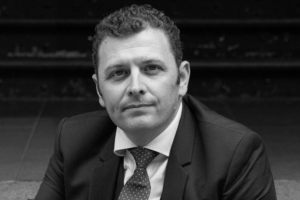What's keeping the Treasurer up at night?BY ANDREW MCKEAN | THURSDAY, 13 JUN 2024 12:41PMTreasurer Jim Chalmers said at the Morgan Stanley Australia Summit in Sydney yesterday that a key goal of the Budget was to fight inflation in a way that doesn't damage an already weak economy. "... the primary focus of the Budget was to tackle inflation and provide meaningful but responsible cost-of-living relief in the form of tax cuts, energy bill relief, cheaper medicines and help with rent and student debt," he said. Chalmers said if the government could have anything it would be "more normal levels of inflation" first and foremost. He added that the thing keeping him up at night is trying to make sure that inflation comes down without smashing the economy. Annual consumer price index inflation peaked at 7.8% in the December quarter of 2022 and has since declined to 3.6% as of the March quarter of 2024. The Reserve Bank of Australia expects this downward trend to continue, projecting inflation to fall into its target range of 2-3% in 2025. However, Chalmers cautioned that the outlook remains uncertain. "We only need to look abroad to see how difficult this is to achieve," he said. "The task of taming inflation has halted growth in Europe, raised unemployment in Canada to its highest level in two years, and progress on inflation has slowed in the US." Last night, the US Bureau of Labor Statistics reported that the annual inflation rate slowed to 3.3% in May 2024, beating forecasts of 3.4%. Despite this progress, inflation has stubbornly hovered in the 3-4% range since June last year. SG Hiscock chief investment officer Rob Hogg said the easing of underlying inflation pressures is "extremely positive" from a monetary policy perspective. He said it's an easing in inflation that will enable the US Federal Reserve to cut rates. Energy transformation Chalmers said the global energy transition represents "a golden opportunity," adding that Australia needs an additional $225 billion of investment by 2050 to transition the energy system and realise net zero opportunities. He said the "financial services industry will play a central role," particularly in how private capital is attracted and deployed. On the government's end, it's investing $13.7 billion in production tax incentives for green hydrogen and processed critical minerals, along with $1.7 billion for an Innovation Fund to develop new industries like green metals and low carbon fuels. "In a policy sense, I really want to land this energy transformation," Chalmers said. He added that if he had a magic wand, his top policy priority would be to attract the private capital that's necessary to make Australia an "indispensable part" of the global net zero transition. Related News |
Editor's Choice
Qualitas scores $550m mandate
ASIC alerts licensees to experienced pathway deadlines
Coller Capital hires former J.P. MAM executive
Partners Group launches private infra fund
 Sponsored by Sponsored by | Know the facts about lifetime annuitiesSaving for a happy retirement is Australia's #1 financial goal. Learn how LifeIncome can deliver more income, certainty, & choice. |
Products
Expert Feed
Featured Profile

Phil Usher
FIRST NATIONS FOUNDATION

























